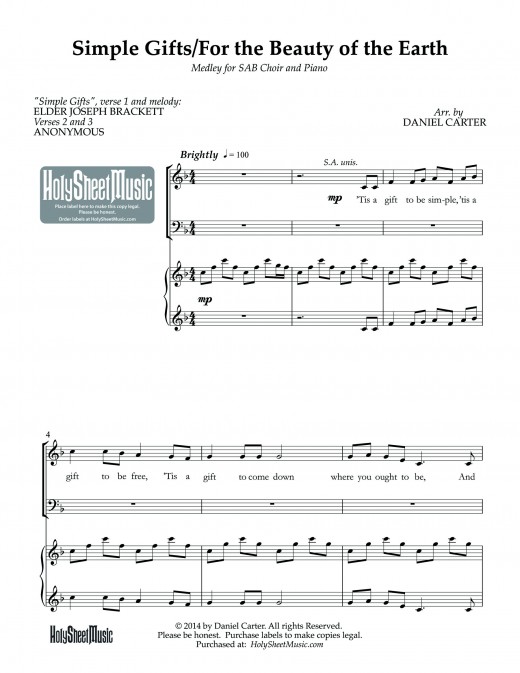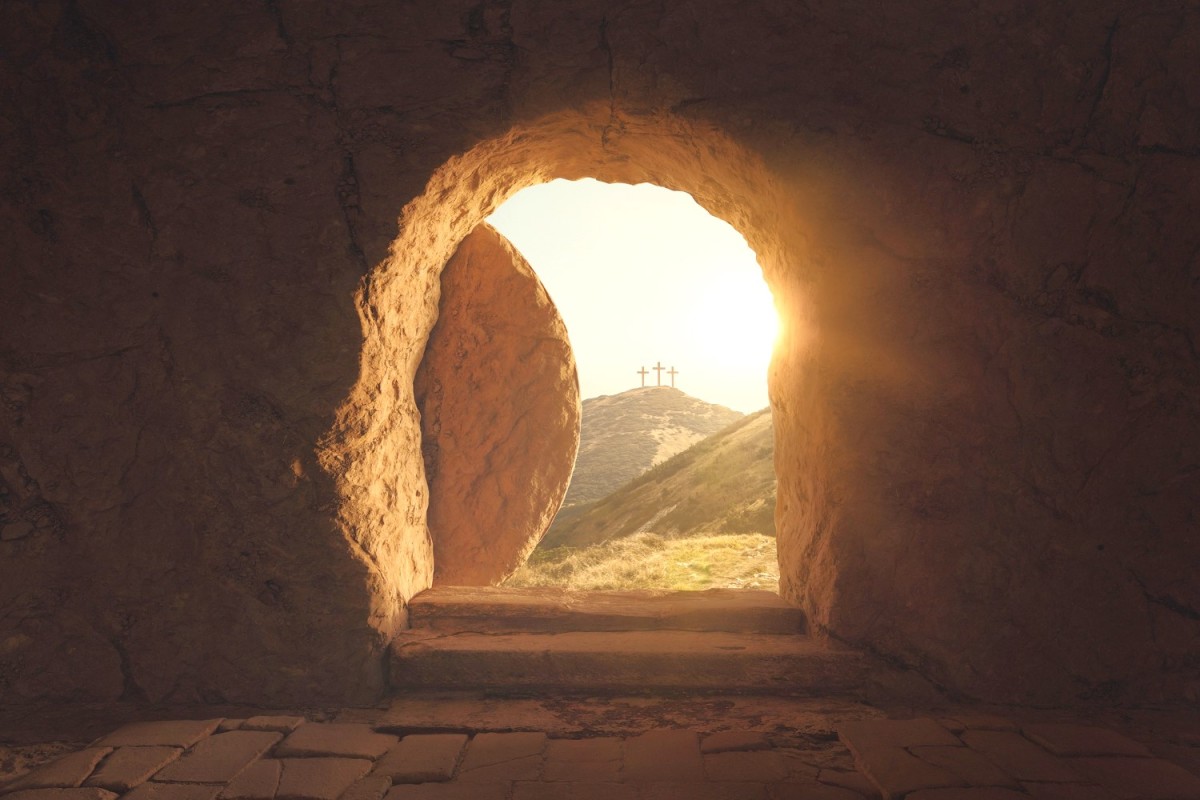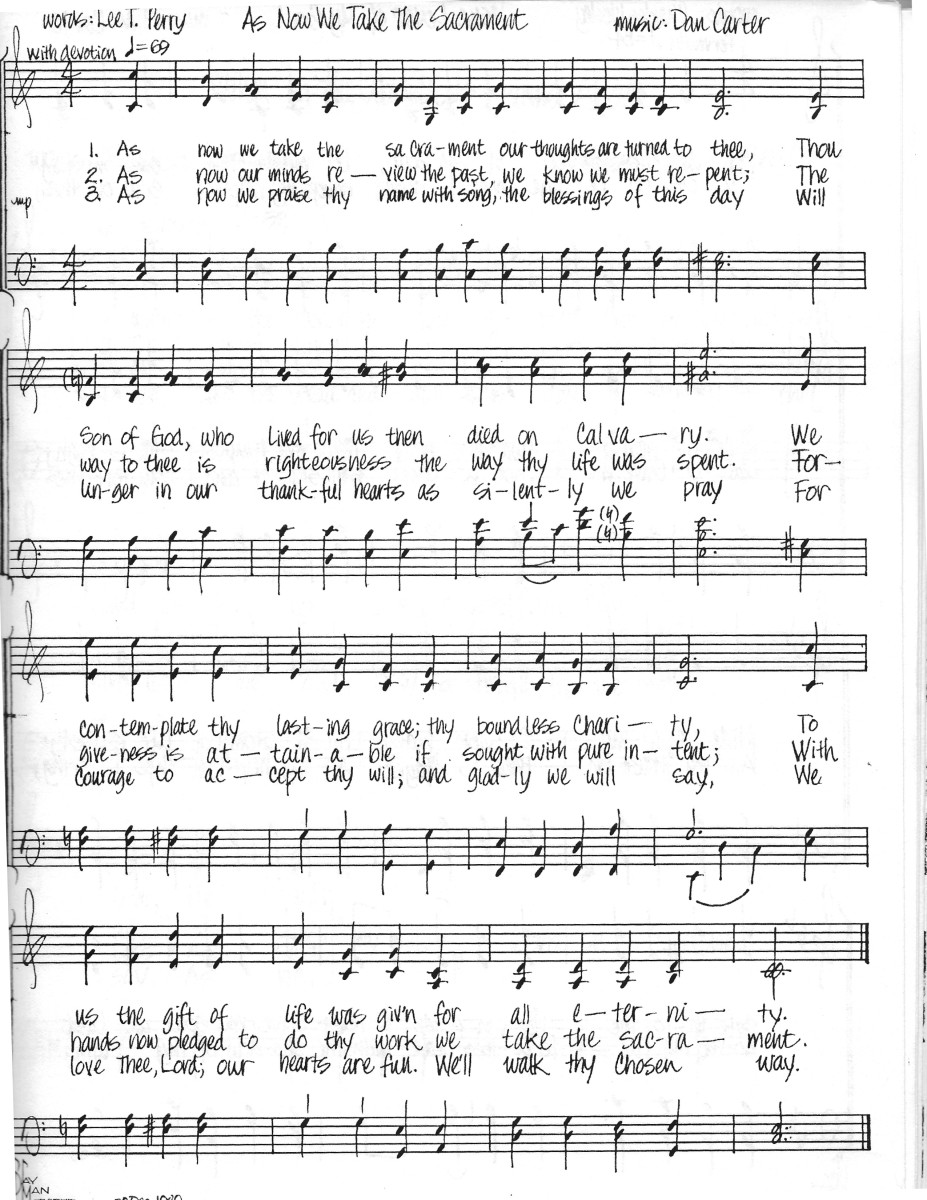"Simple Gifts/For the Beauty of the Earth" Choral Medley by Daniel Carter
"Simple Gifts/For the Beauty of the Earth" Choral Medley Arranged by Daniel Carter
I was commissioned to write a choral medley arrangement of the Shaker hymn, Simple Gifts, and For the Beauty of the Earth. Once the arrangement started coming together, I had the most wonderful time putting the finishing touches on it.
My friend that commissioned the piece said that his choir sang and hummed it in the halls at church for months after their performance. And he pointed out that this piece is a wonderful choice not only at Thanksgiving, but at any time of the year when gratitude, love, beauty, and peace are the theme of worship.
The arrangement needed to be easily accessible and quickly learned with a limited amount of rehearsal time. Arranging it for SAB Mixed Chorus and Piano helped to clarify the parts, and simplify the learning curve. You can hear in the piano accompaniment the "clip, clop" of horse hooves as if the singers were in a horse-drawn carriage. I like to call this arrangement an "Americana" version of the two hymns. Choirs seem to love the blending of the two melodies. It was a delightful surprise to me to weave them together with the accompaniment in such a fun way.

Sheet music is available at HolySheetMusic.com. Arranged for 3-part chorus of soprano, alto and men's voices (in unison) with piano accompaniment.
The lyric to Simple Gifts was penned by Elder Joseph Brackett, who was born May 6, 1797 and died July 4, 1882. He was a member of The United Society of Believers in Christ's Second Appearing ("The Shakers") where he served as an Elder in the church. He was born in Cumberland, Maine, and died in the Shaker community of Sabbathday Lake (at New Gloucester), Maine.
Brackett wrote the lyric in 1848 but the hymn was relatively unknown outside the Shaker community until American composer, Aaron Copland used it in Appalachian Spring. Since then, the hymn and tune have become international favorites in the Christian and folk song communities.
Brackett wrote only one verse to his hymn, as follows:
'Tis the gift to be simple,
'tis the gift to be free,
'Tis the gift to come down where we ought to be,
And when we find ourselves in the place just right,
'Twill be in the valley of love and delight.
(Refrain)
When true simplicity is gain'd,
To bow and to bend we shan't be asham'd,
To turn, turn will be our delight,
Till by turning, turning we come round right.
However, two other anonymously written verses, not of Shaker origin, have also been added through the years:
'Tis the gift to be loved and that love to return,
'Tis the gift to be taught and a richer gift to learn,
And when we expect of others what we try to live each day,
Then we'll all live together and we'll all learn to say,
(Refrain)
'Tis the gift to have friends and a true friend to be,
'Tis the gift to think of others not to only think of "me",
And when we hear what others really think and really feel,
Then we'll all live together with a love that is real.
(refrain)
Simple Gifts, is a dance hymn. The usage of the words "turn" and "turning" are actually dance instructions.
For the Beauty of the Earth
Words to this hymn were written by Folliot S. Pierpoint, and originally had eight verses. However, most versions of it today only include three verses, which are the ones included in this arrangement.
Pierpoint was a college graduate, and taught at schools and colleges off and on throughout his life. He wrote a book of poems as well as other hymn tunes during his life.
Conrad Kocher was German born, and studied piano and composition in Russia, then went on to study in Rome and eventually returned to Germany. He established a school of music in Stuttgart, and made popular congregational singing in four-parts, a departure from the long established tradition of unison singing in church.
I have also arranged For the Beauty of the Earth as two-part choral with piano accompaniment. For additional information about the hymn, author and composer, and to watch the music video of that arrangement, click here.
© 2010 Daniel Carter



